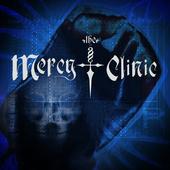
Los Angeles-based musicians Patrick Lachman (DIESEL MACHINE /HALFORD/ DAMAGEPLAN) and Brian Harrah (PROFESSIONAL MURDER MUSIC) met while touring together in the fall of 2000. Lachman was playing guitar with legendary Judas Priest frontman Rob Halford at the time and Harrah’s band landed the opening slot. The two became fast friends. Both Lachman and Harrah made the difficult decision to leave their bands and their homes in LA at about the same time. Lachman relocated to Dallas, TX, to join Damageplan, a new band featuring the late, great Dimebag Darrell. His role was to change a bit in Damageplan as he traded in his guitar collection for a microphone and proved himself to be a dynamic frontman and lyricist. Harrah left PMM and moved to Northern California in 2003. After a brief hiatus from the business, Harrah regained his inspiration once again and soon found himself creating what he considered to be the best music he had ever written. In early 2005, following the tragic demise of Damageplan, Harrah had sent Lachman some rough demos of the music he had been writing. Lachman was instantly struck by what he heard. "I wasnt necessarily looking for it, but all of a sudden there it was, staring me in the face. Something about it was immediately inspiring. I began to immerse myself in songwriting again and focused on putting melodies and lyrics to the music they had sent me. It literally saved me from total insanity." From there, the creative process began to build. Once that first batch of songs was completed, the natural progression was to see how well they jelled as a songwriting unit. According to Lachman, "Once we finally got in a room to write together, there was an immediate chemistry and the songs just kept on coming. We were really comfortable, and very open about the whole process. There were no rules, no egos, just a common goal to write songs that WE could listen to over and over." As the writing chemistry developed, the name of the band itself was conceived as a musical metaphor. They used songwriting as an outlet to vent, in a time where they feel that music has become somewhat superficial and meaningless. Lachman explains, "The concept reflects the content, which is largely a purging of our negativity. It has an intentionally dark overtone." The results speak for themselves - heavy rock songs with undeniable hooks and infectious melodies. While The Mercy Clinic will certainly be recognized as having a "heavy" side, they see themselves as a band that is able to push the boundaries of hard rock music and venture into different territory, rather than trying to fit into any one specific niche or genre. According to Lachman, "Its important to us to dissolve the boundaries and classifications of music that have become so prevalent. If we want to write a ballad, we will. If we want to write an all-out, crushingly heavy tune, so be it. Why try to fit into a category? Trends come and go, but good songs will stand the test of time."
Kedvencek közé jelölték :
Árva zenekar profil
| |||
| |||
0.0051 s